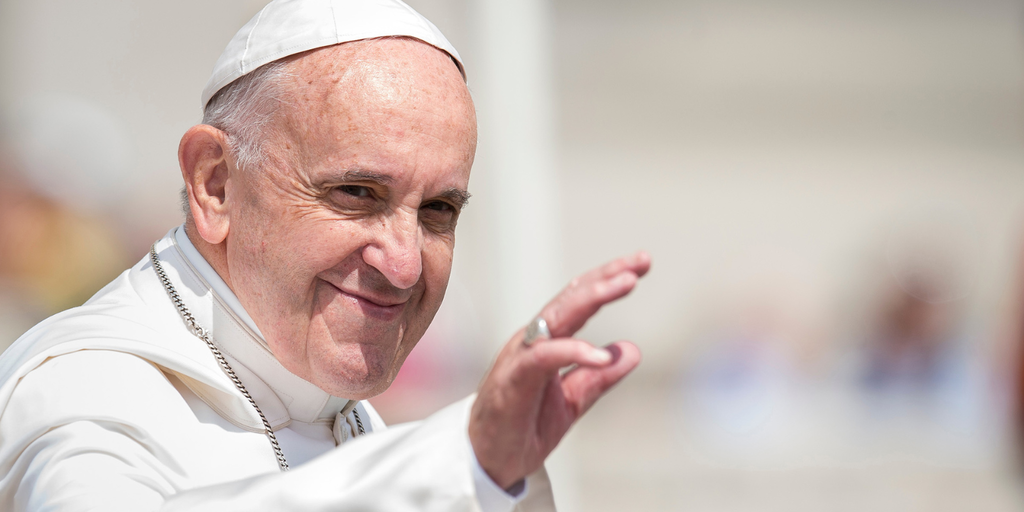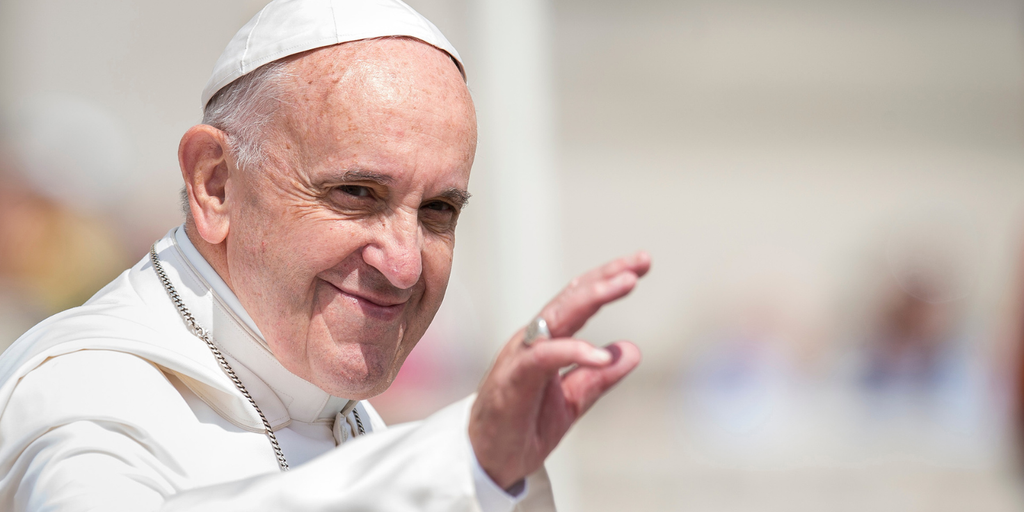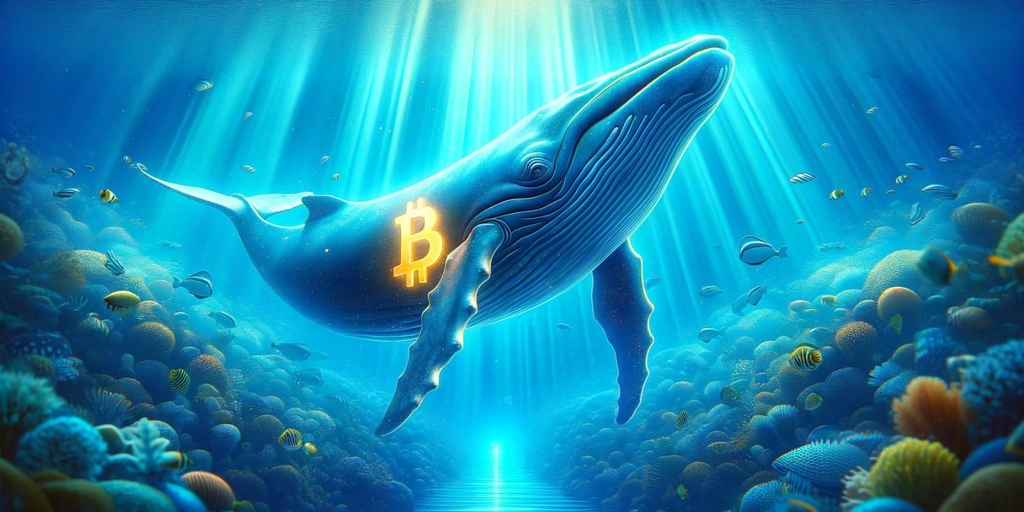

Pope Francis today said he prays for a “profound transformation” of society brought about by digital technology, and again highlighted artificial intelligence, saying he hoped the “inherent dignity” of humanity would be taken into account before the technology is used.
The Vatican published the Pope’s sermon on January 1 to mark the 2024 International Day of Peace, which in part called for the ethical development of AI to serve humanity, reduce harm, and promote peace and justice. In the fall, Pope Francis discussed AI in his homily for the United Nations International Day of Peace in September.
The pope’s plea comes at a time when AI is permeating nearly every aspect of modern life across a variety of industries and other world leaders and policymakers are grappling with how to manage the technology.
“In recent decades, advances in information technology and digital technologies have already begun to bring profound changes to global society and its diverse dynamics,” Pope Francis said. “New digital tools are still transforming communication, public administration, education, consumption, personal interaction and countless other aspects of everyday life.”
In his message for the 57th International Day of Peace, Pope Francis called on the international community to reflect on the impact of artificial intelligence on world peace and to adopt a binding international treaty to regulate the development and use of artificial intelligence.
Read more: https://t.co/wIcWAB372p
— Vatican News (@VaticanNews) December 14, 2023
“We must recognize the rapid changes taking place and manage them in a way that respects institutions and laws that protect fundamental human rights and promote integral human development,” he added. “Artificial intelligence should serve humans’ highest potential and highest aspirations, not compete with them.”
At the press conference announcing the speech, Cardinal Michael Cerny of the Vatican’s Development Agency stated this even more emphatically.
“Artificial intelligence could be the biggest gamble of our future,” Czerny said. Associated Press report. “If there are bad results, humanity is responsible.”
Francis and other world leaders, including US President Joe Biden and former President Donald Trump, have been the target of numerous AI-generated deepfakes.
The proliferation of AI-generated deepfakes has prompted popular image generator Midjourney (which was used to create a deepfake of the Pope wearing a puffy white padded jacket and a silver jewel-encrusted cross) to offer its free tier after the image went viral earlier this year. Canceled. .
“The inherent dignity of each human being and the brotherhood that unites us as members of one human family must underpin the development of new technologies and serve as a sure standard for evaluating them before they are put into use, so that digital progress can be made in a timely manner. do. Respect justice and contribute to the cause of peace,” Francis said.
The Pope acknowledged the potential benefits of AI globally if used responsibly, including through concluding multilateral agreements and coordinating the application and implementation of AI.
“In this regard, I call on the global community of nations to work together to adopt a binding international treaty to regulate the development and use of various forms of artificial intelligence,” Francis said. “The goal of regulation should naturally be to prevent harmful practices, but also to promote best practice by stimulating new and creative approaches and encouraging individual or group initiative.”
Last July, UN Secretary-General Antonio Guterres sounded the alarm about the potential use of AI-generated deepfakes to promote hatred and misinformation in conflict zones around the world.
“Scientists and experts have called on the world to act, declaring AI an existential threat to humanity equivalent to the risk of nuclear war,” Prime Minister Guterres said at a press conference.
Last September, the Biden administration signed a Responsible AI Development Commitment with more AI developers, including NVIDIA, IBM, and Adobe. OpenAI, Google, and Microsoft signed the administration’s pledge earlier this year.
Last November, world leaders from 29 countries and the European Union gathered in Bletchley Park, England, to discuss how to regulate artificial intelligence. The AI Safety Summit concluded with participants signing a declaration to work together to build safe, human-centric AI and bring more transparency to emerging technologies.
“It is my prayer as we begin the new year that rapid advancements in the form of artificial intelligence will not increase the instances of inequality and injustice that exist in the world today, but will help end wars and conflicts and provide relief for many. The forms of suffering that afflict our human family,” the Pope concluded.
Edited by Ryan Ozawa.



